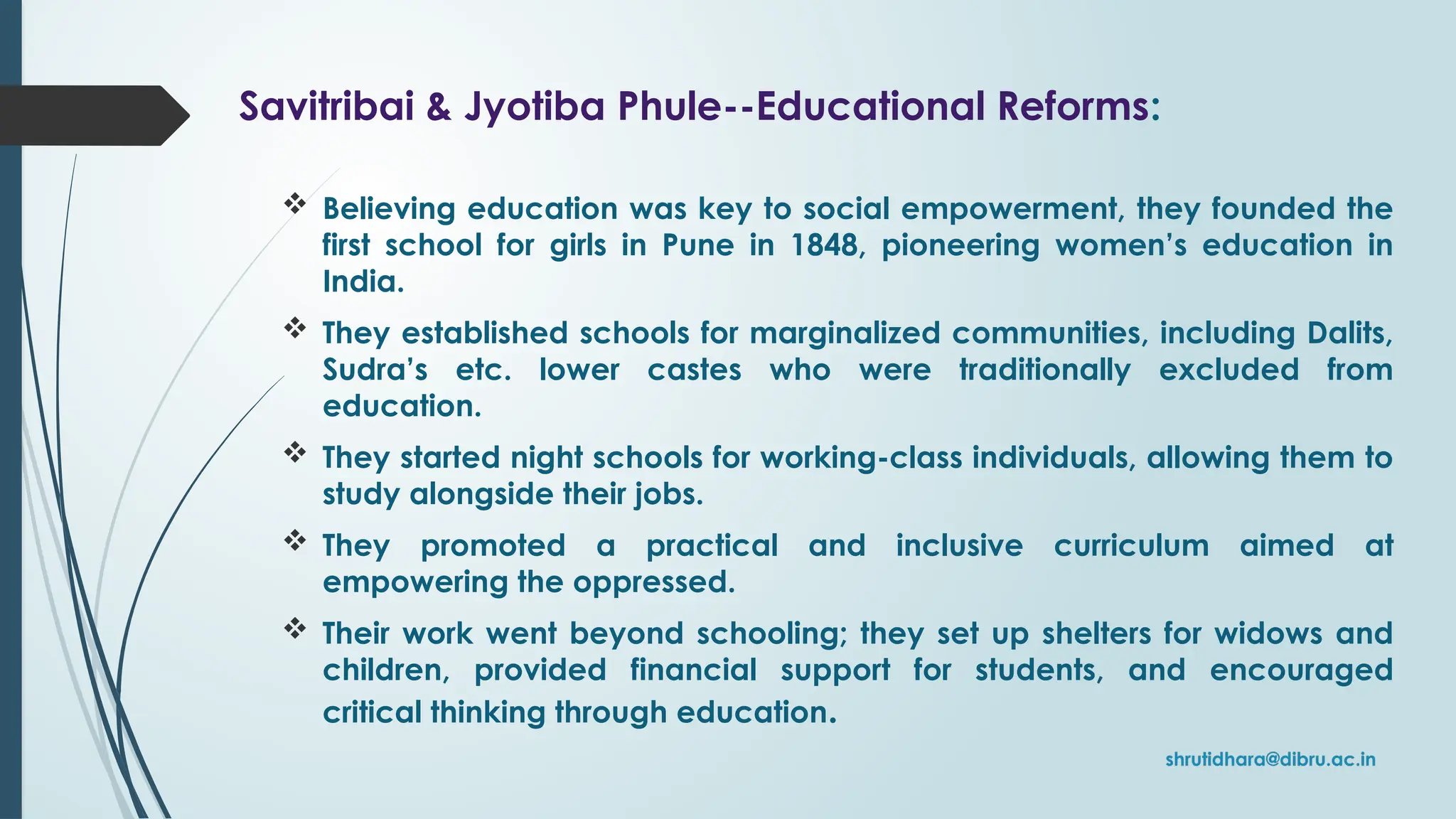Savitribai Phule was a pioneering educator and reformer who became the first female teacher in India, dedicating her life to empowering women and lower castes through education despite facing severe social barriers and discrimination. Alongside her husband, Jyotiba Phule, she founded India’s first school for girls in Pune in 1848 and expanded her pioneering work by opening several schools for marginalized groups, fighting for universal access to education, and supporting progressive social causes such as widow remarriage and inter-caste marriage. Her relentless efforts not only transformed women’s education but also helped dismantle caste-based exclusion and inspired future generations to pursue equality and social justice.
Jyotiba Phule, a visionary social reformer and educationist, focused on uplifting Dalits and oppressed communities through mass education and radical social change. He co-founded schools for girls and marginalized groups, argued for free and compulsory education, and criticized the colonial system for neglecting the needs of rural and disadvantaged learners. Jyotiba’s practical view of education sought to eradicate social evils, and his educational philosophy influenced leaders like Dr. B.R. Ambedkar. His advocacy laid the foundation for inclusive education, and his recommendations to important commissions furthered equality and the rights of primary school teachers.







